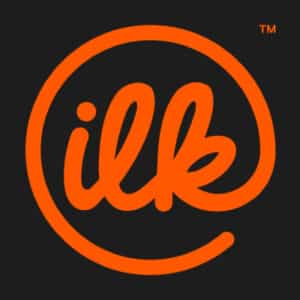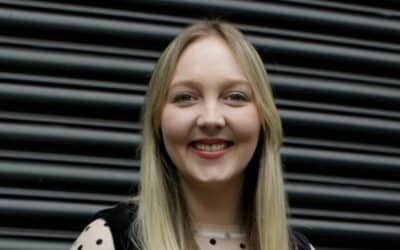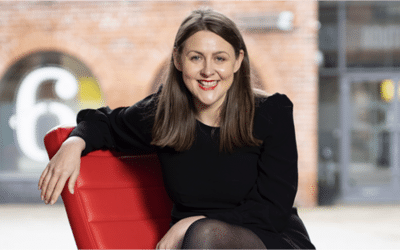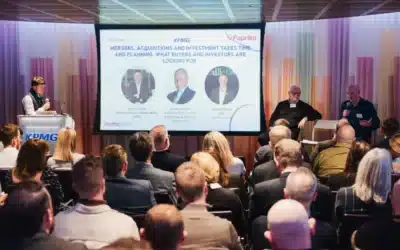Richard Hanney joined Leeds-based ilk Agency as director of strategy and creative copy back in 2014.
Founded in 1999 by Nev Ridley, the agency was named one of Prolific North’s Top 50 Integrated Agencies for 2023.
With previous roles across agencies like Manifest, Hanney shares his career journey, tips and some words of advice…
How did you first get into your industry?
Mainly through desperation.
I graduated in 2010 – with the UK still scrambling post economic crash – and jobs were still thin on the ground. I was essentially looking for anything that would involve me being able to write things.
Eventually that led me to PR, and then I was very lucky to be able to evolve that into copywriting.
What do you love about your job?
I like that – in theory – you can do anything.
When there’s a requirement for creativity, regardless of how small the requirement may be – it’s a licence to try stuff out. For that little bit, before you’ve shared internally and before a client’s seen it, you’ve got a window of absolute freedom to tackle the brief however you see fit.
I’ve always really liked that.
Who – or what – has inspired you in your career?
I’m not sure I can say there’s anyone who’s inspired my career, exactly. As mentioned above, I fell into it by luck and gradually found a path that really suited me.
What I can say though, is that I’m constantly inspired by writing influences in the round (Zadie Smith, David Simon, Barney Ronay, Hilary Mantel, Aliaune Damala Badara Akon Thiam) – and the nice thing is that much of the work I do is culturally engaged, and gives me the occasional opportunity to reference (and sometimes mimic) them.
What are the biggest challenges about your job?
Keeping the faith in the quality/value of what you are doing. For me to do a good job I need a constant pipeline of ideas. Generally speaking, the pipeline itself isn’t the challenge, but trying to be objective about it often is. When I was younger I found it far easier to pitch ideas – perhaps just through the arrogance/ignorance of youth, or just because of sheer keenness – whereas now I tend to be much more circumspect and careful to ensure that anything I come up with genuinely does meet the needs of the brief (and account for any associated metrics / KPIs in the mix).
However, under the weight of all that consideration, it can be really easy to lose the spark of excitement that made you like an idea in the first place – and thus allow creative-doubt to creep in. That ‘spark’ doesn’t always mean the idea is good, but it’s still something you have to protect and nurture – because if it goes out, it makes the challenge of bringing any idea from the dark recesses of your brain into the light of the day infinitely harder.
So really the challenge is twofold. It’s finding the sweet spot between creative excitement and IRL (in real life) pragmatism – and then trusting your judgement that you’ve got that balance right.
What skills have been the most crucial to you succeeding in your career so far?
Writing and talking (in meetings).
It’a sound glib – but having both skills is a complete toolkit to articulate an idea well.
Obviously, coming in with a couple of English degrees (and a lot to say for myself), I began my career knowing I had some writing skills, and thinking that’s likely to be the furrow to plough. But I didn’t necessarily know that I would enjoy talking through thoughts and ideas as much as I did – particularly in client facing scenarios.
For reasons still slightly mysterious to me, so long as I’m talking about subjects I feel knowledgeable about, I found that I could speak well in meetings – which in turn meant that I was developing the skills to sell ideas into clients.
Once that happens, those skills become commercial – which in turn means you become someone who’s offering tangible value.
So I think developing that combo of skills has been what’s helped me over the years.
What was your first salary and what could someone getting into the industry expect to earn nowadays?
I think it was 16K as a ‘PR assistant’.
Today it would be between 20-25K as a copywriter – varying for other specialisms.
What education or training would be most useful for someone looking to follow your career path?
Personally, when I look at CVs for copywriting roles I’m not particularly looking for any precise training or education, just because I’m never convinced the CVs are a very good indicator of talent (especially when recruiting people new to the industry).
That said, in terms of copywriting in particular, a BA degree is a good benchmark, just in the sense that it naturally evidences a good baseline of writing skill (simply by dint of the writing requirement of the assessments). But even then, that’s more about writing competence than talent – which are different things.
What I am always interested in, however, are example bits of work or evidence of interest/passion. Perhaps it’s an article written for a uni publication or zine, or even a dissertation thesis – anything that would give me a sense of how someone can translate their thoughts and ideas onto the page.
Of course, what I look for might not match what is standard for the industry, but I do think the best way to show true suitability for a job (especially copywriting) is demonstrating an interest in the art first, before the prospect of being paid to do it!
What advice would you have for someone looking to follow your path?
Work out what you most enjoy doing – and keep trying to do it.
With copy, you have the advantage of being able to evidence your talent on the page. So if you keep doing it, and it’s good, eventually you’ll get a break.
When you do, work hard and always make sure you remember why you like it.















